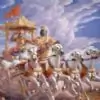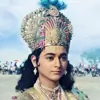Take a look at Ayodhya Kanda, Sarga 99, Sloka 3. This is when Bharata and co, reach Chitrakuta and try to convince Rama to go back, even going as far as to say that Dasaratha had been delusional and it was sinful to rob Rama of his right to the throne just to please a woman; so Rama should return to absolve his father of this sin. Rama responds as follows:
Ayodhya Kanda, Sarga 99, Sloka 3
Long ago, dear brother, when our father was about to marry your mother, he made a bride-price pledge to you grandfather - the ultimate price, the kingship.
This is a startling revelation. According to this, Dasaratha had already jeopardized the throne of Ayodhya the day he married to Kaikeyi. He had promised her father that the kingship would go to an heir produced by Kaikeyi. That was the foundation of the marriage itself. Even before Rama and his brothers were born, even before the boons came into the picture, Dasaratha himself had sown the seeds for political disaster.
Now let's go back to an earlier part of Ayodhya Kanda. At this point Bharata had already gone to his maternal grandfather's kingdom for a while. Dasaratha then decided to crown Rama and called him to inform him of the decision. Among other things, he tells Rama that he has had some bad dreams and observed ill omens. Then he says this:
Ayodhya Kanda, Sarga 4, Slokas 19-20
When such portents as these appear it usually means a king is about to die or meet with some dreadful misfortune. You must therefore have yourself consecrated, Raghava, before my resolve fails me. For the minds of men are changeable.
Look carefully at the bolded part. First he says that these ill-omens usually mean death for the king or some great calamity. Then suddenly he talks about his resolve. He seems anxious, nervous and says that people can change their minds. Why does he need a strong resolve to crown Rama king when he would normally be the rightful heir anyway, given his position as the eldest son and all the good qualities of kingship being present in him? Regardless of death or calamity, why would there be any possibility of changing his mind? This should be a natural and effortless decision. Yet he is nervous about losing his resolve to crown Rama. This is a little odd unless we bring in the brideprice pledge: was he anxious about Kaikeyi (or her family) demanding the brideprice at any moment now that the sons are old enough? Had he resolved to break his word to Kaikeyi's father and crown Rama instead? Is that why he seems so nervous?
Then he says this:
Ayodhya Kanda, Sarga 4, Slokas 21-22
Today the moon has reached Punarvasu, just to the east of Pusya; tomorrow, the astrologers predict, its conjunction with Pusya is certain. On this very Pusya day you must have yourself consecrated - I feel a sense of great urgency. Tomorrow, slayer of enemies, I will consecrate you as prince regent.
Then, a few slokas later:
Ayodhya Kanda, Sarga 4 slokas 25-27
I believe the best time for your consecration is precisely while Bharata is absent from the city. Granted your brother keeps to the ways of the good, defers to his elder brother, and is righteous, compassionate, and self-disciplined. Still, Raghava, it is my firm belief that the mind of man is inconsistent, even the mind of a good man constant in righteousness. Even such a man is best presented with an accomplished fact.
This is very peculiar behaviour for a king for whom everything is supposedly going so well. Why is he so urgent and so much in a hurry to crown Rama in Bharata's absence? It's very odd to leave Bharata out of such an important function. What, is there going to be no good moment in the future at all (astrologically that is) to crown Rama?
The most disturbing part is when he says that Bharata is a righteous man and obedient of his elder brother and yet, Dasaratha is convinced that even the best of men can change their minds on impulse. He feels that it is best to make it so that when Bharata returns, everything is already complete and done with. This extreme nervousness on Dasaratha's part, especially his anxiousness regarding Bharata, is odd to say the least. At this time Kaikeyi has not even mentioned the boons or all is supposedly well in the household and yet Dasaratha is nervous. If everything is well then when why such anxiety?
This is my theory: Dasaratha was nervous because of the brideprice pledge. Back when he agreed to the condition set forth by Kaikeyi's father he probably never imagined it would come to this. His first wife Kaushalya had produced no heir and he was marrying Kaikeyi to get an heir in the first place. He had probably concluded that Kaushalya would never produce an heir and therefore, any future heir would come from Kaikeyi. Hence the pledge would not be at odds with the rules of succession since the eldest son (or only son, whichever might turn out to be the case) would come from this fresh new wife of his. And if by chance Kaikeyi too didn't produce any son then the pledge would be null and void anyway.
The problem happened when he remained without an heir despite having more than 2 queens and the passage of many years. He had to conduct a special yagya to get an heir and he had no choice but to include Kaushalya in the proceedings since she was his chief queen after all. This ultimately resulted in the one thing that he had thought would never happen when he married Kaikeyi: Kaushalya gave birth to the eldest son! Now he was in a conundrum: the rules of succession demanded that he crown Rama (unless he was disqualified somehow and that was not the case) but that would mean breaking his word to Kaikeyi's father. A Kshatriya and that too a Suryavanshi Kshatriya does not go back on his word! He was in a lose-lose situation: no matter what he did he would violating one code or another. The throne was in jeopardy. This explains his nervousness, his anxiety. He loved Rama and wanted to crown him and yet there was the ever-present problem of the brideprice pledge. Kaikeyi's family could demand the price at any moment!
Finally Dasaratha decided to break his pledge and crown Rama anyway. This is why he was afraid of losing his resolve. He seized the opportunity the moment Bharata left Ayodhya and was therefore in a desperate hurry to finish the official work while Bharata was absent. Perhaps he was afraid that Bharata's maternal grandfather might be trying to convince him (Bharata) to claim the throne. Dasaratha figured that Bharata was still a righteous person and would not raise any objection - nor could he do much - once he finds out that Rama had already been crowned. But as long as there was a chance for the kingship, as long as the throne was still within his grasp, there was that small but fearsome possibility that Bharata could demand the throne (or be used by his maternal relatives for that purpose).
I did not create this theory out of thin air. Both the Tattvadipika and Bhusana commentaries are of the opinion that Dasaratha was thinking of the brideprice pledge in Sarga 4, Sloka 25. The Tattvadipika commentary even theorizes that Dasaratha may have doubted Bharata's self-control. So this theory is not a new one: it's something that has occurred to Ramayana scholars even several centuries ago!
The question is: when did Rama find out about the pledge? He certainly knows about it when Bharata goes to bring him back. Did he know about it when Dasaratha said he wanted to crown him? But then this would mean that Rama was participating in Dasaratha's attempt to break the pledge and Rama was not supposed to be that sort of person. He would have insisted that Dasaratha should keep his word and crown Bharata. I think he learned of this later when the political mayhem of Kaikeyi's demands began.
What about the boons then? Why did Manthara and Kaikeyi have to go for the boons when this pledge alone would have been enough? Indeed the references to the boons are a bit inconsistent. In Sarga 9, when Manthara is poisoning Kaikeyi's mind, she first talks about reminding Dasaratha about the boons. In fact, we are told that Kaikeyi had actually forgotten about the boons that Dasaratha had granted her long ago and Manthara had to remind her about them.
Then she says this:
Ayodhya Kanda, Sarga 9, Slokas 22-23
When the great king Raghava helps you up himself and offers you a boon, then you must ask him for this one, first making sure he swears to it: 'Banish Rama to the forrest for nine years and five, and make Bharata king of the land, the bull among kings."
Notice how she is now telling Kaikeyi what to do when Dasaratha offers her a boon. She is talking about getting a boon rather than a boon (or boons) already given, which is what she was saying just before this sloka. There is some inconsistency regarding whether the boons were given earlier or whether Kaikeyi should get one now.
Then, in the next scene:
Ayodhya Kanda, Sarga 10, Sloka 21
Let the three and thirty gods, with Indra at their head, hear how you in due order swear an oath and grant me a boon.
Ayodhya Kanda, Sarga 10, Sloka 24
This mighty king, who is true to his word and knows the ways of righteousness, in full awareness grants me a boon - let the deities give ear to this for me.
Again notice how Kaikeyi is saying that Dasaratha had just granted her a boon. It is in the present tense whereas you'd expect her to say that he agreed to live up to the boons that he had already granted long ago. Once again we have an inconsistency about the boons (given in the present vs given in the past).
Kaikeyi's forgetting the boons is itself a bit odd and she is in fact instructed by Manthara to entice Dasaratha using her beauty. Then there is the inconsistency about the boons themselves as I described above.
Is is possible that the boons were introduced into the story, and direct references to the brideprice pledge removed, to absolve Dasaratha of deceit when he decided to crown Rama and shift the blame to Kaikeyi instead? Once we take the pledge into account, Kaikeyi demanding the brideprice is not wrong on its own: Dasaratha had given his word and it was her right to claim the pledge. We know that in later versions of the epic, the notion of Manthara being divinely manipulated (Saraswati making her say those things to Kaikeyi) was created to absolve her of guilt. Was this boon thing an earlier attempt to do the same for Dasaratha and preserve his image as a righteous king?
This brings us to the question of why the direct reference to the brideprice pledge was not removed from Sarga 99. Perhaps it is the result of errors creeping in as the story passed orally and then by manual copying with continuous revisions. These revisions and errors probably introduced inconsistencies. On the other hand, perhaps this reference was kept in order to justify/explain Rama's continued insistence to remain on exile. Bharata, Vasistha, etc had already declared Dasaratah to have been delusional when he agreed to Kaikeyi's demands thus placing the whole exile and Bharata's crowning into question. If he was delusional, as everyone insisted, then Rama did not have to stay on exile anymore. This is where Rama refers to the pledge (he must have learned about this sometime between Kaikeyi tricking Dasaratha and Bharata's arrival in Chitrakut). As a dutiful son, he could not have his father's pledge violated. Even if the boons were given in a fit of madness, the pledge was given years ago when Dasaratha was perfectly sane. It could not be rendered null and void and Rama, the maryada purushottam. must honour his father's word. The reference to the pledge was perhaps kept in the poem when it was absolutely necessary to justify/explain Rama's insistence to remain on exile whereas it was removed everywhere else to absolve Dasaratha of the guilt of violating his own word. Perhaps these were ongoing revisions as the poem passed on, first orally and then by manual copying and so the existing written versions retain the inconsistencies associated with such revisions. Note that I am not saying Valmiki himself made such deliberate changes. Perhaps he didn't. Perhaps these revisions started later on. Who knows.
Let me go a bit further (and this is pure speculation): Manthara had been Kaikeyi's servant since she was a child. In other words, she had come with her from Kaikeya. Was she aware of the pledge? Maybe she was instructed by Kaikeyi's family to make sure Kaikeyi extracts the pledge from Dasaratha.
N.B: All sarga/sloka numbers are from the Critical Edition. English translation is from the Goldman, Pollock, et al translation of the Critical Edition.































